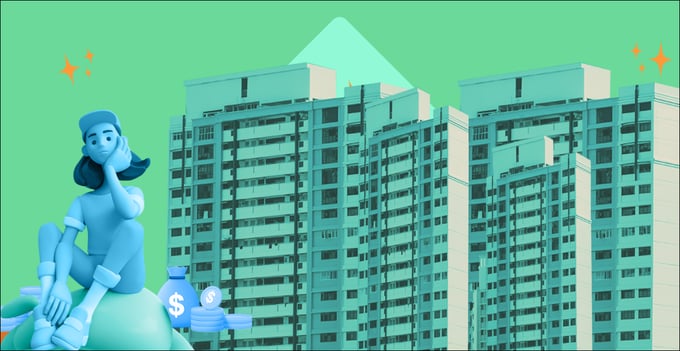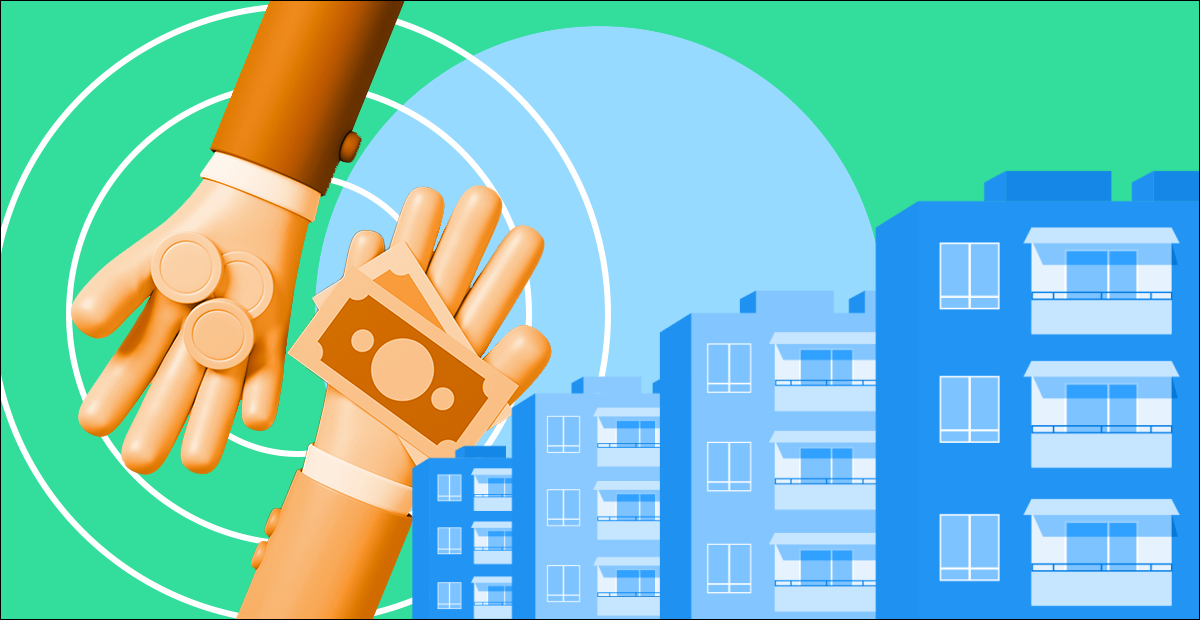How is home mortgage interest calculated in Singapore?
The interest on home mortgages is calculated on an amortisation basis, or reducing balance basis. This method allows you to pay the interest on your loan while also paying down your principal with each monthly instalment.
The interest payable each month is calculated using the following formula:
- Outstanding loan amount (multiplied by) interest rate (divided by) 12.
This means that the amount of interest paid is the highest at the start of the mortgage, and decreases with each subsequent payment. At the same time, the amount paid into your principal starts off small, and increases each month.
Here’s a quick example to help illustrate amortisation in action.
Assuming a mortgage loan of S$300,000, with a tenure of 20 years, and interest of 4% per annum.
Using this handy amortisation calculator, we get this loan summary:
- Monthly payment: S$1,818
- Total interest paid: S$136,306
- Total cost of loan: S$436,306
- Last payment due: Dec 2042 (20-year term, starting on Dec 2022)
Here’s what the numbers look like in the beginning and at the end of the mortgage. Note that the total amount paid each month (interest + principal) remains the same.
|
Month |
Interest paid |
Principal paid |
|
1 |
S$1,000 |
S$817.94 |
|
2 |
S$997.27 |
S$820.67 |
|
3 |
S$994.54 |
S$823.40 |
|
- |
- |
- |
|
238 |
S$18.06 |
S$1,799.88 |
|
239 |
S$12.06 |
S$1,805.88 |
|
240 |
S$6.04 |
S$1,811.90 |
As shown above, the interest charges in the first month takes up more than half of the total payment. This is because the outstanding loan amount is the highest at the point in time.
Because a portion of the total monthly payment goes towards the principal, the outstanding loan amount is reduced in the next month. This, in turn, results in a lower interest charge for the month, which means slightly more is paid into your principal the next month.
This process goes on throughout the loan tenure, with the interest decreasing and the principal increasing.
What is the effect of making extra payments to your mortgage each month?
What happens if we pay more into our mortgage each month, say, by S$100? Let’s take a look at the numbers.
Loan summary (with S$100 extra payment each month)
- Monthly payment: S$1,918
- Total interest paid: S$124,692
- Total cost of loan: S$424,692
- Last payment due: Jun 2041
Increasing your mortgage payment by S$100 each month creates two beneficial outcomes. One, the total interest paid is lowered – by around S$12,000 in our example.
Two, the last payment date is brought forward by a whopping 18 months, which means you can free up your cashflow much earlier, to put towards other uses.
This is all happening because the outstanding loan amount decreases by an additional S$100 each month, accelerating the entire cycle.
What happens if mortgage interest rates go up?
When the interest on your mortgage increases (and if the tenure remains the same), the amount you have to pay each month will go up – there’s simply no way around it.
Here’s a side-by-side comparison showing what happens if the interest rate goes up a mere 0.5% – from 4% to 4.5%.
|
Mortgage interest: 4% |
Mortgage interest: 4.5% |
|
|
Monthly payment |
S$1,818 |
S$1,898 |
|
Total interest paid |
S$136,306 |
S$155,508 |
|
Total cost of loan |
S$436,306 |
S$455,506 |
|
Difference |
- |
S$19,202 |
With just a mere 0.5% increase, you’ll end up paying over S$19,000 more in interest over the course of your mortgage. If that’s not discomfiting enough for you, go to the calculator linked above and put in some bigger numbers. We dare you.
Perhaps what’s more worrying is the immediate increase in your housing costs, as some Singaporean homeowners found to their dismay earlier this year when interest rates spiked.
With interest rates rising, paying off your mortgage early becomes a survival strategy
Okay, buckle up people, because it seems that things are going to get worse before they get better. OCBC expects interest rate hikes to continue into 2023, while DBS foresees mortgages to go up by as much as $1,000 each month.
So, given the coming storm, doesn’t it make sense to simply hold on to your money and tough out the coming rise in housing costs?
Yes, this approach will allow you to “roll with the punches”, so to speak, and it is important to prioritise everyday expenses given how shaky the global macroeconomic situation is right now.
However, if you have the cash to spare, paying more into your mortgage now will allow you to build up a buffer that can help you better absorb any interest rate increases that come your way.
And, if interest rates remain more or less the same, or go down, then you’ll be able to pay off your mortgage quicker, and save a chunk on interest charges – as demonstrated earlier.
Don’t stop shopping for the best mortgage deals
At the risk of belabouring the point – only increase your mortgage payments if you have the means to do so. If it comes down to it, reserve your emergency savings for more immediate events, such as retrenchment or unanticipated expenses.
Realise that while paying more into your mortgage is no doubt advantageous, it will take some time for the benefits to be realised.
Thus, it is important for homeowners to keep looking out for mortgage deals so as to keep housing costs as low as possible.
Then, capitalise on the best rates you can find by paying more into your mortgage each month to reduce your outstanding loan.
With some luck, you may just see yourself sailing out of this tumultuous time sooner rather than later.
Buying your first home soon? Then you'll want to compare and apply for a low interest rate home loan on SingSaver. What's more, you stand to get rewarded* with cash and prizes!
*Rewards may change at any time. Terms and conditions apply.
Read these next:
How Much Do You Need To Buy Your First Home In Singapore?
How Some Singaporeans Buy A House Without The Bank's Help
How Do HDB Home Loans Work?
Home Insurance Promotions and Discounts To Protect Your Home
5 Renovation Tips To Maximise The Value of Your First Home
Similar articles
Reducing Balance Method: What Is It and Why It Saves You Money on a Personal Loan
Rising Interest Rates And The Effect On Mortgage Debt In Singapore
Singapore Mortgage Rates 2023 – Will They Rise or Fall?
When Should You Start Planning To Refinance Your Mortgage?
Mortgage Rates in Singapore are on the Rise. Here’s How Homeowners Can Save
Why Your Car Loan Interest Is Secretly Double What It Seems
The Effects of Compounding Interest – How It Works And Why It Matters To Know
Should You Pay Off Your Mortgage Faster, Or Invest Your Money?








.png?width=800&height=250&name=SCB_PL_TIERED_BLOGARTICLE_800x250%20(1).png)


